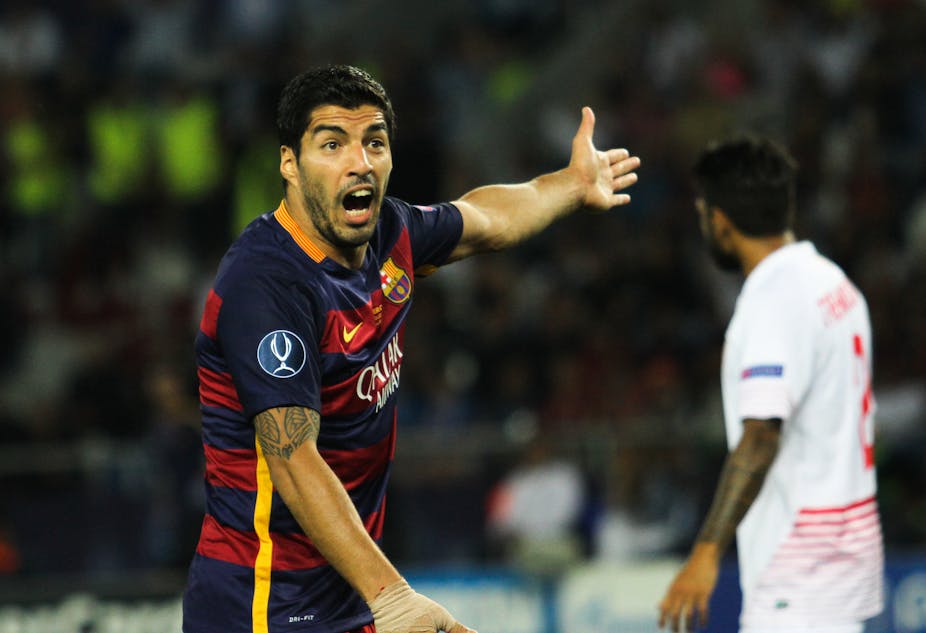What drives professional sportspeople to break the rules of the game? And what makes them believe, or hope, that they won’t get caught? Or think that their actions will bring glory to them and their team?
It seems to be a daily occurrence now, that professional sportsmen and women bend or break rules to get ahead. Whether it’s diving, handballing, faking, or even inflicting injury, many spectators will have seen things that are not completely above board.
When we began investigating the topic of rule-breaking in sport, we found to our surprise that there had been no research that looked at the impact of personality on antisocial behaviour in team sports. In particular, we were curious to examine the personality traits that might best explain negative behaviours at the highest level. And for that, people with narcissistic traits appeared to be the prime candidates.
Good sport, bad sport
Narcissists are highly ambitious individuals with unusually high self-expectations in all walks of life. In sport, one might consider these to be essential ingredients for reaching and performing at the highest level. However, combine them with a lack of empathy for others and the self-obsession that is typical of narcissism and it produces a darker side.
Our research into sportsmen and women across a number of team sports found that people with narcissistic character traits are more likely to be detached from morality and are prone to anti-sporting behaviours. They are also more likely to break the rules to achieve their own personal goals, ahead of the team’s needs, because winning – above playing fair – means everything to them. They will justify any actions beyond the bounds of acceptable behaviour, because these actions, however unacceptable, will help them to reach their ultimate personal goal of appearing glorious in the eyes of others.
Goals for glory
So just how damaging is narcissism in sport? Sometimes the players with narcissistic tendencies get away with this kind of behaviour when playing in teams. All English football fans will most likely never forget Diego Maradona’s infamous “hand of god” goal during the 1986 World Cup, for example. The quarter-final between England and Argentina has been marred by controversy to this day. Though Maradona was seen knocking the ball into the goal with his hand – a big no-no in football – Tunisian referee Ali Bin Nasser claimed not to have seen it, and allowed the point.
While we’re not suggesting that Maradona is a narcissist, one could say that this is an example of an antisocial act which actually benefited the team – so why would you want to discourage it?
Offenders are not always so lucky, and on other occasions their actions have cost their teams dearly. In the 2014 World Cup, Luis Suarez appeared to bite Italian player Giorgio Chiellini while playing for Uruguay. The incident went unpunished during the match, but Suarez was retrospectively banned for the rest of the tournament, and many say his behaviour scuppered Uruguay’s World Cup chances. The incident shows that there are clearly different outcomes to controversial and antisocial acts, and advancements in technology mean that there is no longer any hiding place for such wrongdoing.
Can player behaviour be changed?
It is obviously very difficult to change a person’s personality fundamentally, and successful sports men and women undoubtedly require drive and self-belief in order to perform at such high levels. The challenge is to devise strategies for team coaches to encourage more positive behaviour from team members who may have this character trait.
We suggest focusing on sharing responsibility across teams. Dividing the role of team captaincy, for example, would encourage players to take responsibility for their actions, and they would be setting an example for teammates follow. Such an exercise would emphasise individuals’ need to take responsibility for their actions and how it can contribute to the good of the team. We already know from previous research in sport that narcissists don’t make the best leaders over a prolonged period, and so sharing that leadership duty is probably best.

